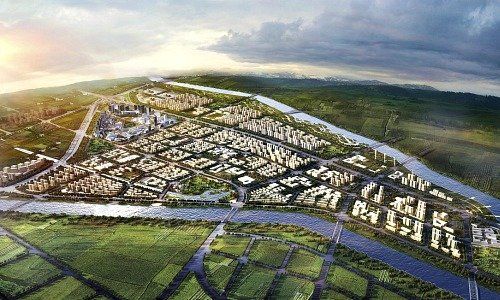Huge Climate Investment Opportunities in Asia
With 1.2 billion more people expected to live in Asian cities in 35 years, the cities have a potential to attract more than $20 trillion in climate-related investments by 2030.
With more than half of the world’s population currently living in urban areas, cities consume over two-thirds of the world’s energy and account for more than 70 percent of global carbon dioxide emissions.
How cities address climate change will be critical to efforts to limit global warming to 1.5 degrees Celsius, according to the Intergovernmental Panel on Climate Change (IPCC).
Related Targets
A new report by the International Finance Corporation (IFC), a member of the World Bank Group, analyzes cities’ climate-related targets and action plans in six regions, identifying opportunities in priority sectors such as green buildings, public transportation, electric vehicles, waste, water, and renewable energy.
It highlights innovative approaches that cities are already using – such as green bonds and public-private partnerships – to attract private capital and build urban resilience.
Highest Smart Investment Potential
It says with its plans, policies and projects, the Asia Pacific region has the highest climate smart investment potential of any region in the world, with by far the biggest opportunity in green buildings, estimated at a $17.8 trillion opportunity by 2030.
Globally, green buildings will account for $24.7 trillion of cities’ climate investment opportunities. Significant investment potential exists in low-carbon transportation solutions such as energy-efficient public transport ($1 trillion) and electric vehicles ($1.6 trillion). At the same time, clean energy ($842 billion), water ($1 trillion) and waste ($200 billion) remain essential components of sustainable urban development.
Green Buildings
In Asia Pacific, the report estimates the investment potential in green buildings is $17.8 trillion; in waste $104 billion; public transport $352 billion; renewable energy $407 billion; climate-smart water $571 billion and electric vehicles $783 billion.
Addressing climate change is a strategic priority for IFC. Since 2005, IFC has invested $22.2 billion in long-term financing from its own account and mobilized another $15.7 billion through partnerships with investors for climate-related projects. The latest report is part of the Climate Investment Opportunities report series initiated by IFC in 2016.



























